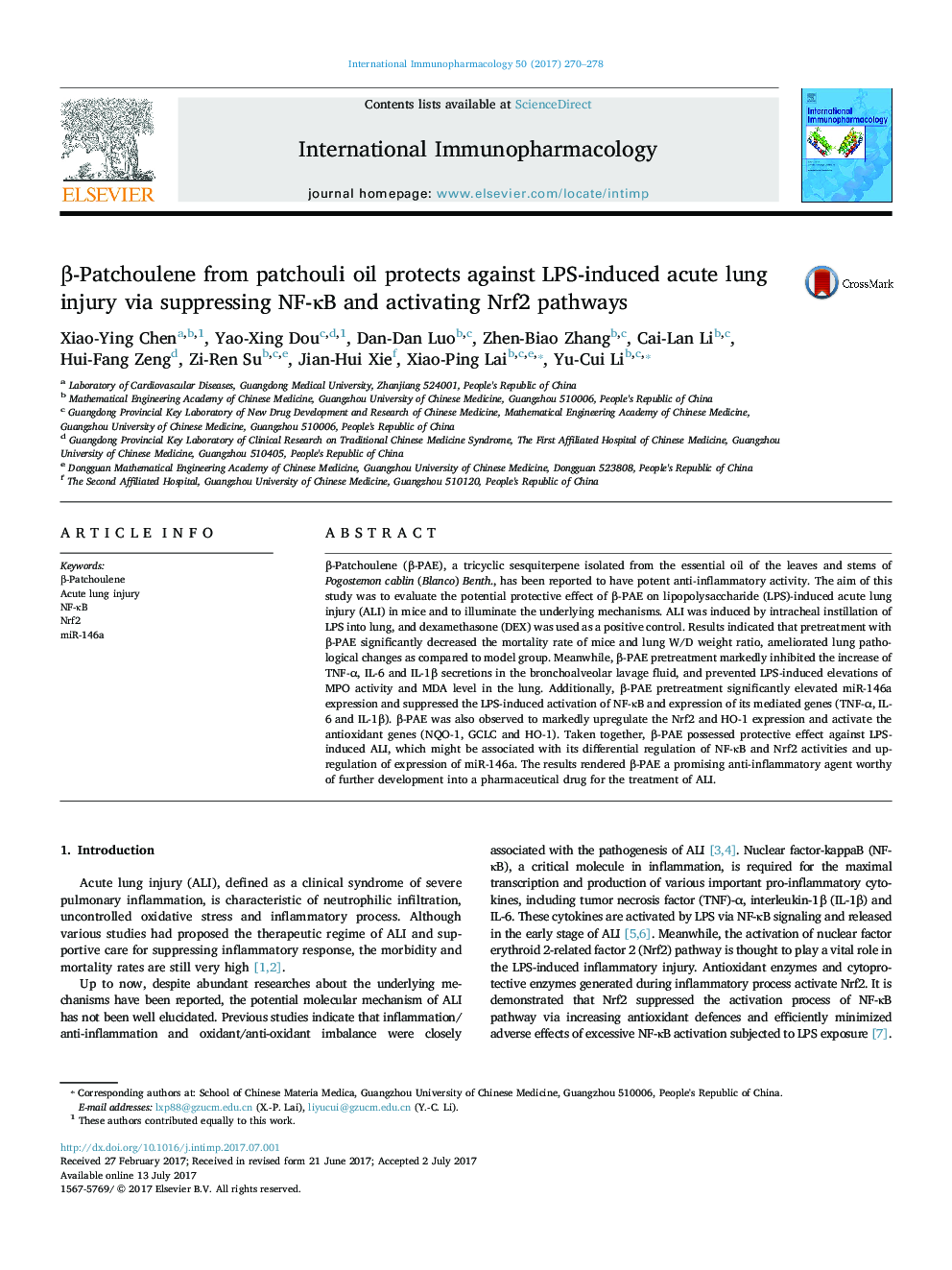| Article ID | Journal | Published Year | Pages | File Type |
|---|---|---|---|---|
| 5555318 | International Immunopharmacology | 2017 | 9 Pages |
â¢Î²-PAE significantly decreased the mortality rate of mice and lung W/D weight ratio, ameliorated lung pathological changes.â¢Î²-PAE pretreatment markedly inhibited the increase of TNF-α, IL-6 and IL-1β secretions in the bronchoalveolar lavage fluid.â¢Î²-PAE prevented LPS-induced elevations of MPO activity and MDA level in the lung.â¢Ã-PAE possessed protective effect against LPS-induced ALI by inhibiting NF-κB and activating Nrf2 pathways.
β-Patchoulene (β-PAE), a tricyclic sesquiterpene isolated from the essential oil of the leaves and stems of Pogostemon cablin (Blanco) Benth., has been reported to have potent anti-inflammatory activity. The aim of this study was to evaluate the potential protective effect of β-PAE on lipopolysaccharide (LPS)-induced acute lung injury (ALI) in mice and to illuminate the underlying mechanisms. ALI was induced by intracheal instillation of LPS into lung, and dexamethasone (DEX) was used as a positive control. Results indicated that pretreatment with β-PAE significantly decreased the mortality rate of mice and lung W/D weight ratio, ameliorated lung pathological changes as compared to model group. Meanwhile, β-PAE pretreatment markedly inhibited the increase of TNF-α, IL-6 and IL-1β secretions in the bronchoalveolar lavage fluid, and prevented LPS-induced elevations of MPO activity and MDA level in the lung. Additionally, β-PAE pretreatment significantly elevated miR-146a expression and suppressed the LPS-induced activation of NF-κB and expression of its mediated genes (TNF-α, IL-6 and IL-1β). β-PAE was also observed to markedly upregulate the Nrf2 and HO-1 expression and activate the antioxidant genes (NQO-1, GCLC and HO-1). Taken together, β-PAE possessed protective effect against LPS-induced ALI, which might be associated with its differential regulation of NF-κB and Nrf2 activities and up-regulation of expression of miR-146a. The results rendered β-PAE a promising anti-inflammatory agent worthy of further development into a pharmaceutical drug for the treatment of ALI.
